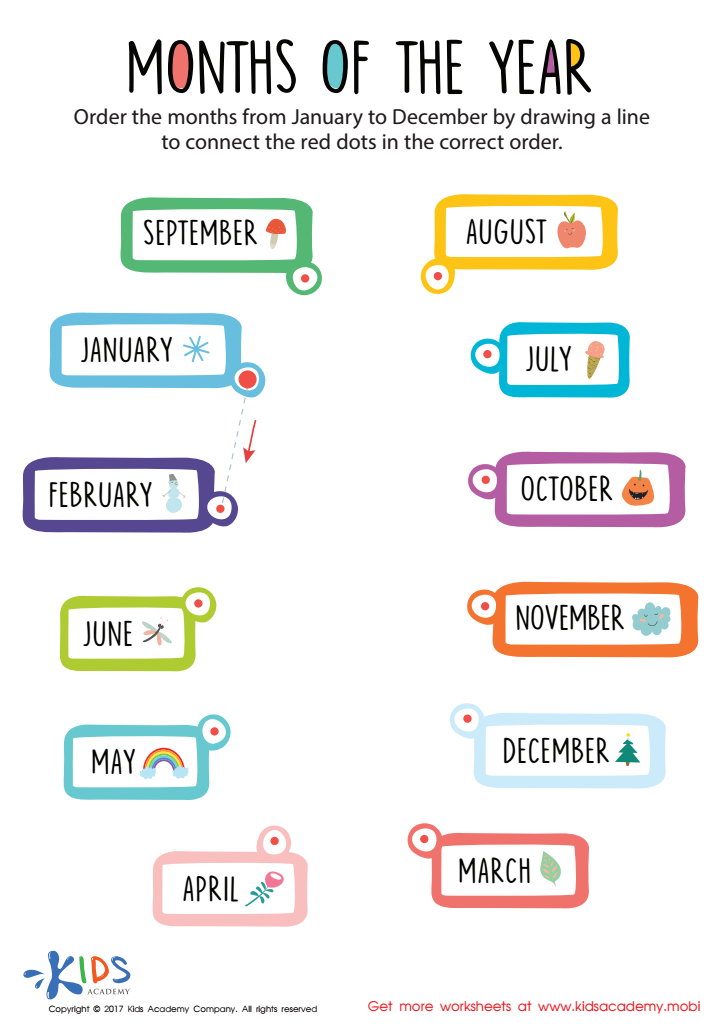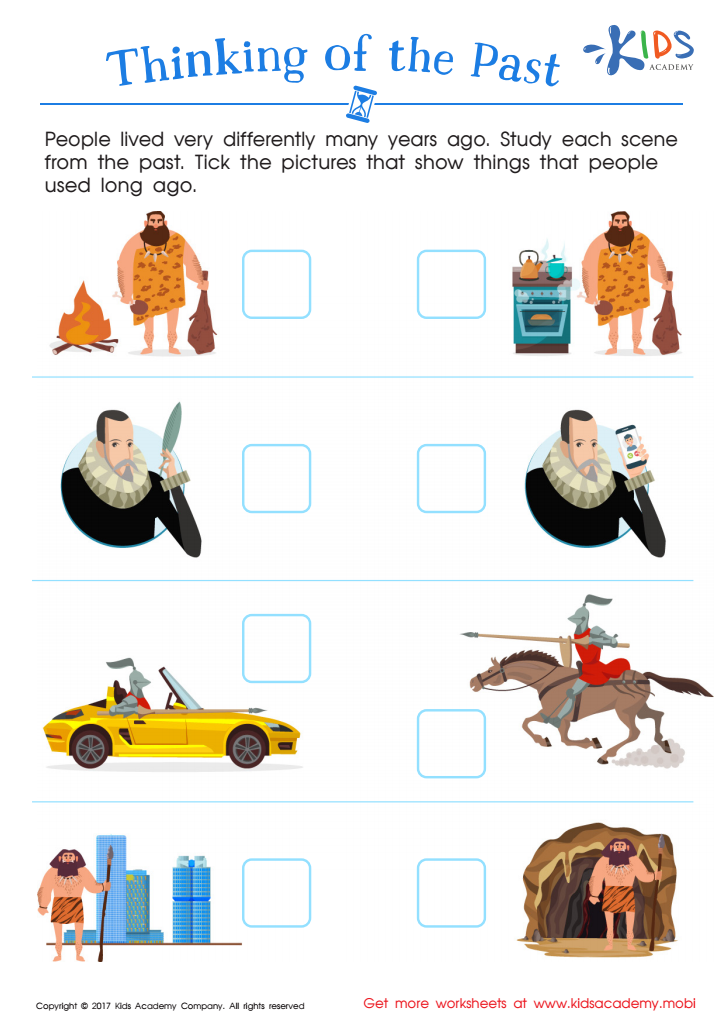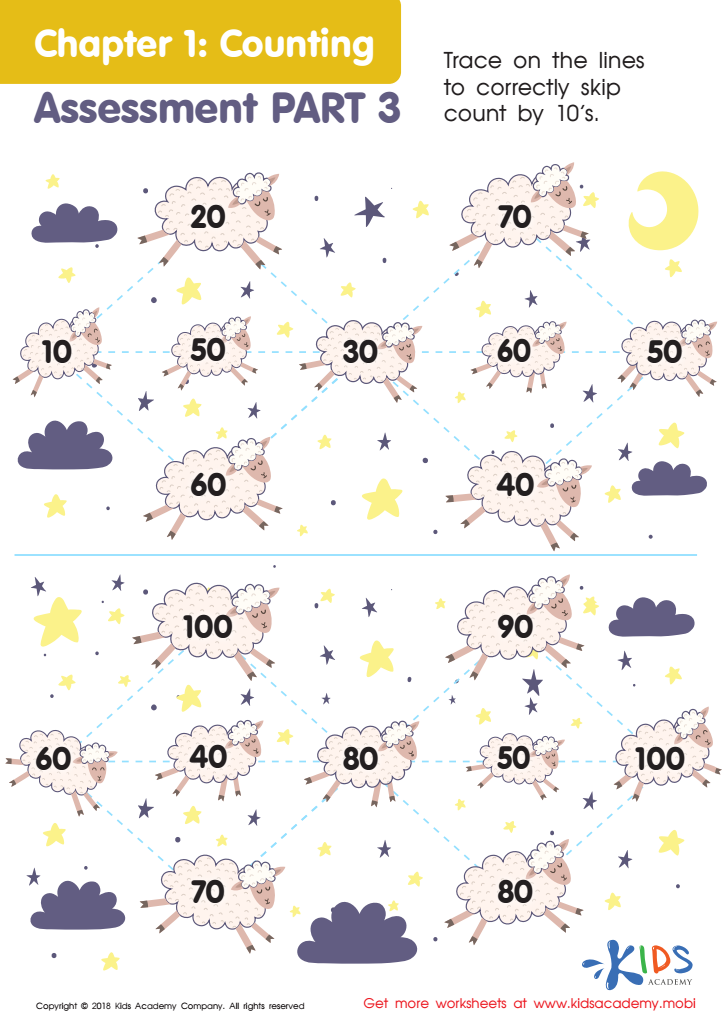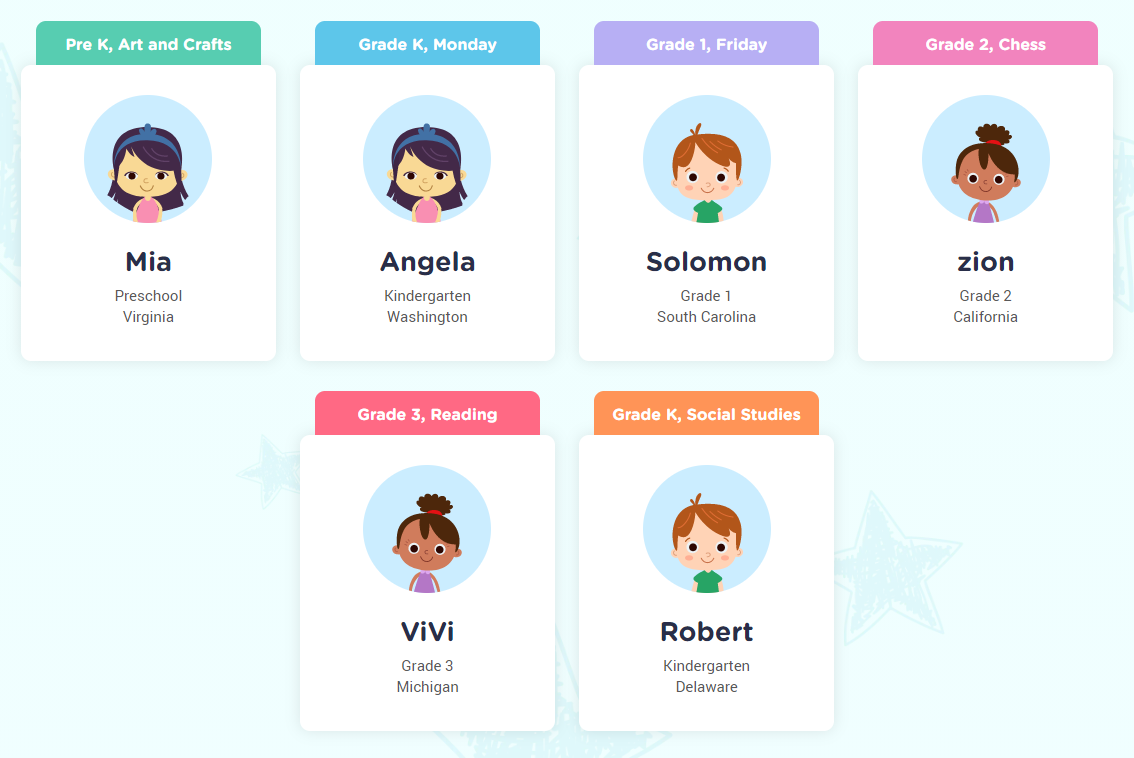Understanding sequence Worksheets for Ages 3-5
4 filtered results
-
From - To
"Understanding Sequence Worksheets for Ages 3-5" are educational tools designed to enhance early learners' cognitive abilities by helping them grasp the concept of sequencing. These engaging worksheets from Kids Academy involve fun activities like identifying patterns, arranging pictures in logical order, and storytelling tasks. Perfect for preschoolers and kindergarteners, the materials allow young minds to improve their understanding of order and progression through interactive exercises. With a focus on developing critical thinking and problem-solving skills, these printable resources make learning both fun and effective, paving the way for academic success in future educational endeavors. Click to download and start the journey today!


Months of the Year Worksheet


Thinking Past Printable


Counting: Assessment 3 Worksheet
Understanding sequences is crucial for children aged 3-5 as it lays the groundwork for essential cognitive and academic skills. Sequences help youngsters grasp the concept of order and predictability, which is fundamental to their daily routines and procedural knowledge. When children learn to recognize patterns, they can better anticipate what comes next, fostering a sense of security and confidence. This is particularly important during early developmental stages when structure and consistency are key to emotional stability.
In literacy, sequencing is vital for comprehension. Recognizing the order in which events happen—whether in a story or in steps to complete a task—enables children to follow narratives and instructions effectively. This foundational skill boosts their ability to retell events and improves critical thinking.
In mathematics, understanding sequences equips children with the basic principles of counting, addition, and problem-solving. Recognizing patterns, such as the numerical order, helps in developing arithmetic skills that will be used throughout their education.
Additionally, sequences are part of daily life skills, like following instructions for dressing, preparing food, or playing games. When parents and teachers emphasize sequencing, they facilitate a deeper understanding of the world, helping young children develop into organized, logical thinkers capable of approaching problems systematically.
 Assign to My Students
Assign to My Students




















